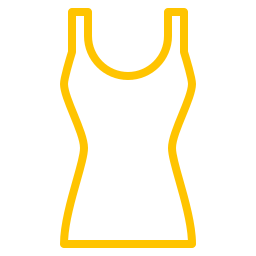New mothers often find themselves on the receiving end of all kinds of advice. Most people are genuinely trying to be helpful, but unfortunately, few topics attract more heated debate, misinformation, and confusion than breastfeeding. Many new moms, who start breastfeeding, find themselves hearing some of these “old wives tales” and myths about breastfeeding that have no scientific basis or even logical justification. Far too often, you have to sift through a lot of breastfeeding misinformation in order to get the truth.
We’re here to help! Here are a few common breastfeeding myths – and the real facts you need to know.
Myth: If you have small breasts, you won’t produce enough milk to feed your baby.
Truth: Size doesn’t matter! Whether you’re buxom or flat chested, the size of your breasts has no impact on your body’s ability to produce milk.
First, let’s look at a few facts about the anatomy of the breast. Breast size is caused by the amount of fatty and fibrous tissue in addition to the amount of milk-producing glandular tissue. Second, breast milk production is hormonally stimulated and increases with the baby’s demand. It’s very clever – the baby is in control of the amount of milk produced, and the breast size makes no difference at all.
Very simply, increasing frequency and effectiveness of breastfeeding sessions with a baby increases the milk supply. There are many things that can affect the production of milk like stress, tiredness or depression, but the size of your breast size is not a contributing factor.
Milk storage capacity in the breast may differ, so some moms may have a larger or smaller capacity to store milk, which may lead to your baby nursing less or more frequently. But as long as the breasts are being drained effectively, your body will keep producing more breast milk.
Myth: It is normal for breastfeeding to hurt.
Truth: While many women have some initial discomfort related to getting the baby to latch on to the nipple properly, breastfeeding is not supposed to be painful.
Some moms do comment that the first few times they breastfeed, it feels “different,” but that shouldn’t be a surprise since you’ve likely never experienced a liquid coming through the milk ducts and out your nipples before. Challenges are often related to the infant, not the mother. Babies may not be able to latch properly for example, so mothers shouldn’t automatically assume that it is their breast or breast milk production that is the problem.
Myth: A mother must drink milk to make milk.
Truth: Sorry milk lovers. This just isn’t true. Milk production is tied to how well the breast is being drained of breast milk. You have to remember this is a supply and demand situation. Your breast will begin increasing or decreasing production to meet the consumption needs of your baby. While you don’t need cow’s milk to make human milk, you do need water, so remember to make sure you are drinking enough water while you are breastfeeding.
Myth: Breastfeeding mothers should always use both breasts at each feeding.
Truth: Your breasts “know” how much milk they need to make, depending on the baby’s demands. If you go too long without nursing from one breast, it might start to feel full – but you don’t have to worry about whether the baby is drinking from both breasts at every single feeding. In fact published research on the range of “normal” when it comes to breast preference shows that 30 % of babies always take just one breast, 13 % always take both breasts, and 57 % mix it up!
Myth: Frequent nursing causes a child to be obese later in life.
The trick is to remember that babies are preprogramed to eat when they are hungry or need energy, not always when we want them to feed. This is called “cue based feeding” and has been shown to help reduce the risk of developing diabetes later in life.
Myth: Nursing a baby after 12 months is of little value because the quality of breast milk begins to decline after six months.
Truth: Breast milk doesn’t decline in quality over time. It’s true that breast milk composition changes throughout the breastfeeding duration, but this is just another sign of how perfectly breast milk has developed to continue meeting your baby’s developing needs.
It’s important to remember that many of your baby’s systems will develop over years, not simply 6 or 12 months, which is why breast milk helps to continue to meet those developing requirements. The reason we add complementary foods to breast milk at 6 months isn’t because breast milk is no longer important, it’s simply because your baby nutritional/caloric needs are no longer met by breast milk alone.
Your breast milk will continue to provide your baby immune protection, as well as nutrition, the entire time you continue providing your baby with breast milk. This is important because it takes years before a child’s immune system matures fully. Some parts won’t be fully developed until he’s over 10 years old!
Myth: Don’t breastfeed if you’re sick.
Truth: Breastfeeding is safe and healthy for babies, even if the mother is feeling under the weather. In fact, part of the benefit of breastfeeding is that because your baby is likely exposed to the same cold or flu that you picked up, it’s easier for your mature immune system to develop the antibodies and leukocytes to fight the cold/flu than his. These antibodies and leukocytes are transferred through your breast milk when you breastfeed. Ingenious, isn’t it?
The only exception is if you’re taking a medication that is not safe for breastfeeding mothers (always check with your doctor and pharmacist and make sure they know that you’re breastfeeding). Flu viruses can be especially challenging on new-born’s, since their immune system is not yet mature. For this reason, it is best to make sure you have been vaccinated with the annual flu vaccine. Remember, when you get vaccinated, your body will build the antibodies and leukocytes that will get transferred through your breast milk to your baby to help protect him from that virus.
Don’t let breastfeeding myths hold you back. Do your research and be a better-informed mom. Arm yourself with all well-documented and credible breastfeeding facts so you know which advice to ignore.






















